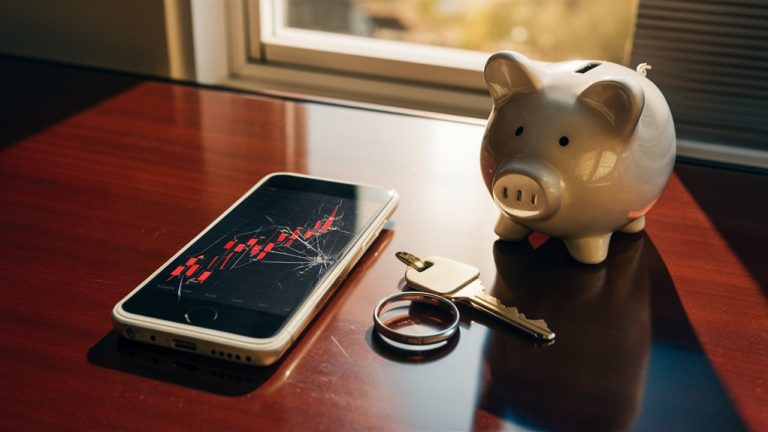How Our Minds Deal with Losses in Trading
Chasing losses can begin a hard cycle that twists how our minds see rewards. When we dig into the brain work behind it, we see how trading losses put us into deep mind and body throws.
The Brain and Chasing Losses
When money slips away, the amygdala sparks up, sending stress stuff far and wide. In step, high cortisol levels twist our thinking, making us likely to make poor trade moves.
Signs and Dangers
- Going big, well past normal risks
- 스포츠토토솔루션
- Leaving behind smart safety plans
- Always on watch for prices and trading lots
- Listening to gut more than brain
How This Changes Your Trading
All these mind and act shifts turn smart plans into wild risks. This comes from wrecked reward tracks in our brains, making trading wild and bad cash results.
Breaking the Cycle of Chasing Losses
Knowing the facts on how we hate losing sets up strong blocks. Good risk rules and watching our emotions keeps our cash and minds safe in trading.
Knowing the Feel and Cash Losses
How Losing Money Hits the Brain
The brain faces big changes with money losses, making deep brains and choice-making hard. Amygdala reacts when losing cash, sending out stress stuff, in big part cortisol, messing up our smart thinking.
The Drive to Avoid Loss
The need to dodge losses is strong in our heads, making losing feel about twice as bad as wins feel good. When cash vanishes, the hurt is way more than the joy of earning the same. This shows why folk risk a lot to win their cash back.
Dopamine and Trying to Come Back
The brain’s reward center, tied to dopamine, gets mixed up with cash loss. This shift makes us want to fix our mood by taking risks, like how obsession works, chasing not just cash but feeling normal again.
What Goes on in Our Minds
- Feelings rule: Big feels can block smart thoughts.
- Risky views: When aiming to regain cash, we might miss risk.
- Chase rewards: We try hard to make it right fast through risky ways.
- Thinking dips: It’s tougher to choose well with money under stress.
How We Act When We Lose
How our brains, thoughts, and stuff mix shapes how we move when we drop cash. Seeing these brain shifts is key to setting plans to take on losses and keep smart when cash stuff hits hard.
How to Spot Risky Loss Chasing in Trading
What to Watch For
We need to see certain mind and act changes when we begin chasing losses. These signs often start small then grow into risky trading habits.
Cash Warning Bells
A big red flag is when traders go over time and money plans to fix losses. Main things to see include:
- Putting key cash into trades
- Taking loans just to trade Why the Near Miss Is No Accident
- Using money needed for big bills
Mind Shifts in Trading
How Trading Moves
Emotional shifts show as:
- Bigger bets to fix past losses
- Trading more with less wait
- Jumping in and out with no plan
Things to Keep an Eye On
Watch for these big changes:
- Can’t move on from losses
- Always watching prices
- Trading way more than usual
- Skipping the rules
- Forgetting safety steps
Feeling the Pressure
Emotional signs to spot include:
- Stress during trading times
- Hiding what you’re up to
- Needing to outdo the market
- Down when not trading
Seeing these hints tells us we need to act quick to halt bigger cash and mind hurts.
Guide to Stopping Bad Habits in Loss Chasing
Grasping the Issue
Starting a solid plan is central to ending the bad cycle of chasing losses. It starts with a firm stop on losing more and a strong will to step back when it’s hit. Tracking closely what we do is a big part of staying right.
New Good Moves
Trading bad acts is key to getting better. We should make time for fun tasks like working out, fun stuff, and time with friends without betting. Block bad sites and let a pal you trust watch your cash for a while.
Getting Help
Talking it out, like with CBT, aids in taking on loss chasing. Working with pros who know their game helps us see and mend odd thought ways. Building up good ways to take on stress and knowing what pushes us is key to not sliding back.
Building a Support Team
Being with a support group ties us with folks who know the deal.
- Tough cash rules
- Swapping bad for good ways
- Talking it through with pros
- Sticking with folks in the same spot
- Watching how you’re doing
It needs strong will and steady work with good folk to keep going past loss chasing.


